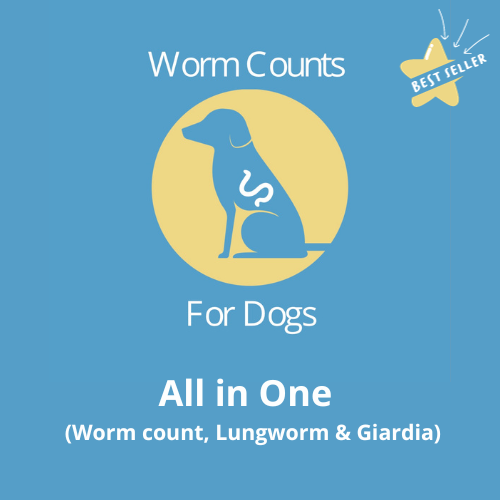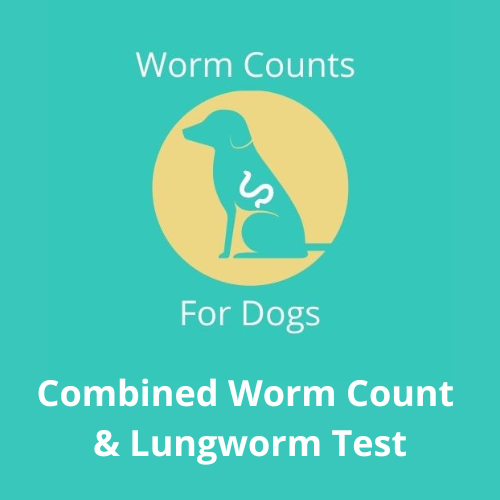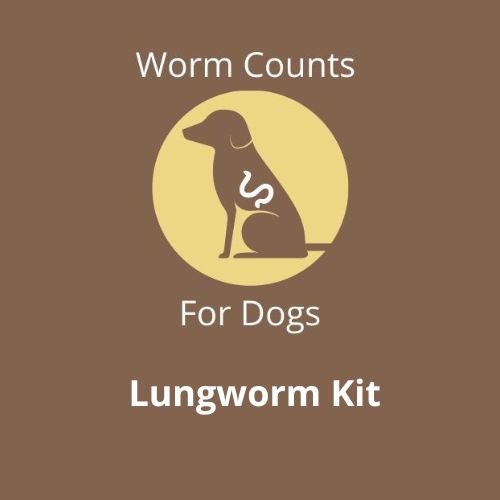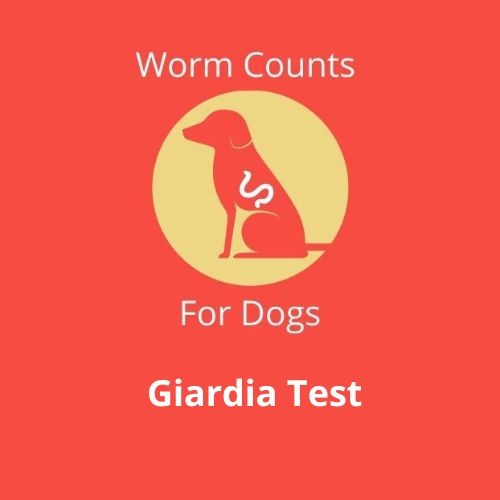What is Giardia in dogs?
Giardia is a tiny parasite found in the intestines of dogs, cats, and humans. It can cause severe gastrointestinal disease and can be passed between animals and humans. Giardia also poses a greater risk if you, your child, or your pet are immunocompromised, so it’s vital to ensure no one in your household comes across it.
This article will explain the following- How your dog gets giardia
- What are the symptoms of giardia in dogs
- How to test your dog for giardia
- Where to get treatment
Forewarned is forearmed.
How does my dog become infected with Giardia, and how does it spread?
Giardia has a protective shell called a cyst, which allows it to survive outside the body; it must be ingested by your dog, cat, or you and yours to shed its outer shell and infect you.
Dogs can get giardia from poo, sniffing another dog’s bottom (the most common greeting), contaminated water, food, soil and contaminated animals, or visiting places, the park, dog daycare or dog groomers where other infected dogs are present.
Can humans get it?
Humans can also contract Giardia from each other, infected dogs, and cats, so always wash your hands and keep things clean, especially around babies and children and in the areas where your dog lives — including toys, food and water bowls. Keep children off the dog’s toys in the garden and vice versa. Immunocompromised people and pets As with any other illness or disease, anyone, including pets, who are immunocompromised is particularly susceptible to giardia.
What are the symptoms of Giardia in dogs?
The symptoms of Giardia include:
- Watery diarrhoea
- Vomiting
- Excessive wind
- Loss of appetite
- Lack of energy
- Frequent pooing
It's worth mentioning that all of us, including dogs, can have Giardia in our intestines without showing any symptoms (asymptomatic), making it even more important to keep everything clean, especially handwashing.
How to check your dog for giardia**
There are a couple of ways to check:
- A giardia home test you do yourself.*
- A worm count test
*This is a giardia test for dogs in the UK only. It looks the same as a Covid test, except you use a tiny sample of poo. No need to put any stick where the sun doesn’t shine, use what your dog presents you with!
We strongly recommend keeping one in a drawer for a quick diagnosis. If your dog tests positive, you’ll want to treat them quickly.
All giardia tests, including ours, have an expiry date of two years. Another option is a worm count test — our worm count kit tests for giardia and worms under the microscope. Consider it a 2-4-1!
For belts and braces, we recommend doing both: a home test, followed up with a worm count kit.
**You can use both tests for cats too.
What should I do if my dog tests positive for Giardia?
Get them to your vet for treatment as soon as possible. It's also crucial to tell them if you have other pets because they may need treatment.
Additionally, your dog may be dehydrated due to diarrhoea, watery stools, and vomiting, so fluids and electrolytes may be necessary, especially for young puppies and kittens who can become ill and dehydrate quickly due to their small size.
Management of Giardia in dogs
Giardia is highly contagious and can survive in the environment for months. Having had it in the past does not mean you or your dog are immune, and reinfection is possible. To give everyone as much chance as possible to avoid reinfection:
- Pick up your dog's poo immediately
- Clean the area after you’ve picked it up
- Thoroughly clean all rooms your dog, cat, baby, or child can access
Steam cleaning works well, as does a diluted bleach solution. Don’t use steam and bleach together. You don’t want to inhale it.
Retest, retest, retest
It's crucial to retest for Giardia, especially if you or someone close to you is immunocompromised or if you have a baby or toddler who frequently comes into contact with the dog, the cat, the floor and might pick up and eat anything dropped on it, including toys! In these cases, multiple retests are a good idea.
Extra measures you can take
- Keep a giardia kit at home for immediate use and a quick result
- Regularly test for worms as routine worm counts test for giardia too
- Always clean up after your dog
- Empty and clean your cat's litter box regularly
- Keep your dog, other pets, and babies or children away from litter boxes and areas where your dog frequently poos.
- Wash your hands thoroughly (preferably wear rubber gloves) when cleaning places your dog or cat has been in contact with






